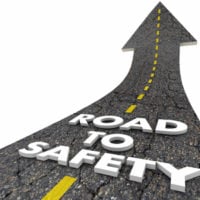Deadline: 25-May-21
The U.S. Embassy in Kyiv, Ukraine, of the U.S. Department of State announces an open competition for organizations to submit applications to implement the 2021-2023 English Access Microscholarship Program in five regions of Ukraine.
The English Access Microscholarship Program (Access) is a global program supported by the U.S. Department of State. Access provides a foundation of English language skills to talented 13-20 year-olds from economically disadvantaged sectors through after-school classes and intensive sessions.
Access gives participants English skills that may lead to better jobs and educational prospects. The program also gives participants the opportunity to gain an appreciation for U.S. culture and values.
It is intended to increase their ability to participate successfully in the socio-economic development of their countries and improve their chances of participating in educational and exchange programs in the United States.
Since its inception in 2004, approximately 150,000 students in more than 80 countries have participated in the Access Program.
Program Objectives
The goal of the Access Program is to equip talented students who possess a minimal knowledge of English with effective communication and critical thinking skills through meaning interaction, cooperative learning strategies, and real-life contexts.
Additionally, Access seeks to prepare students for conversational English language skills with native and non-native speakers of English through a variety of experiential learning activities.
Selected participants must be bright, economically disadvantaged 13- to 20-year-old students with beginning level of English. Participants should commit to enroll in classes during the full two year program.
Students will graduate with certificates of completion from the U.S. Embassy in Ukraine at the end of their two-year program.
The Program is divided into distinct phases:
- After-School Instruction: Access Program is a two-year program that requires a minimum of 360 hours of instruction reasonably distributed over the two-year period. After-school instruction has been the preferred time for teaching and has generally taken place three days a week with each class lasting from one to two hours per day. It is the responsibility of the Providers to consider the schedule of the students to ensure that Access classes do not interfere with students’ regular school schedule. Enhancement activities related to U.S. culture and values must occur regularly throughout the two years of the program, including during after-school instruction.
- Intensive Sessions: Intensive Sessions are often two-week-long summer programs that include more instruction hours per week than the After School program. These sessions are included in the 360 hours of required instruction. Hours of instruction during Intensive Sessions may not exceed 8 hours per day or 40 hours per week. Intensive sessions should combine English language instruction with U.S. cultural activities such as drama, computers, art, music, or games and sports, or even civic responsibility projects, leadership and teamwork training, or tolerance programs. Access Program intensive sessions are an important activity which can supplement, initiate, or conclude a student’s two-year English language programming. All intensive sessions should provide students with a window on U.S. culture and values, and their activities as much as possible should incorporate invited speakers (e.g. U.S. exchanges alumni, Embassy personnel, and other native and non-native English speaking partners, etc.).
- Community Service Activities: Access students should also be involved in community service activities to increase their awareness of issues facing their respective communities while also gaining an understanding of the ways they can positively contribute to civil society.
- Alumni Programming: The program seeks to encourage alumni networking, professional development, and civic involvement by supporting alumni-initiated projects that support civil society involvement in Ukraine’s reform efforts, encourage tolerance and integration of marginalized or displaced populations, and celebrate the strong links between the people of the United States and the people of Ukraine.
Funding Information
- Award Ceiling: $120,000
Project Implementation Location
- The project implementation location should include the following oblast towns throughout Ukraine: Bakhmut, Dnipro, Kharkiv, Slovyansk, and Starobilsk.
- Regional projects should be coordinated with local oblast educational authorities. (Applicants should take note of the Department of State’s Ukraine Travel Warning and programming should not take place in areas where grant monitoring is not possible due to security considerations).
Eligibility Criteria
- Proposals may be submitted by Ukrainian or U.S. based not-for-profit organizations, including think tanks and civil society/non-governmental organizations. Basis for award of the grant:
- The grantee should be an established institution or a non-governmental organization (NGO) with at least 3 years of experience in administering educational programs and/or teaching English, preferably to the target age group.
- The grantee must have access to an established core of English instructors willing to commit their time to this project.
- The grantee must identify the location(s) and venue(s) that will be used for this program (verified with a document/preliminary agreement) and will be responsible for recruiting students, and in consultation with the Regional English Language Office at the U.S. Embassy, developing the curriculum.
- Organizations with previous experience and a capacity of working with educational institutions on a national level will be given priority.
- The following organizations are eligible to apply:
- Not-for-profit organizations, including think tanks and civil society/non-governmental Organizations.
- Note: For-profit and commercial entities are ineligible.
For more information, visit https://www.grants.gov/web/grants/view-opportunity.html?oppId=333106








































